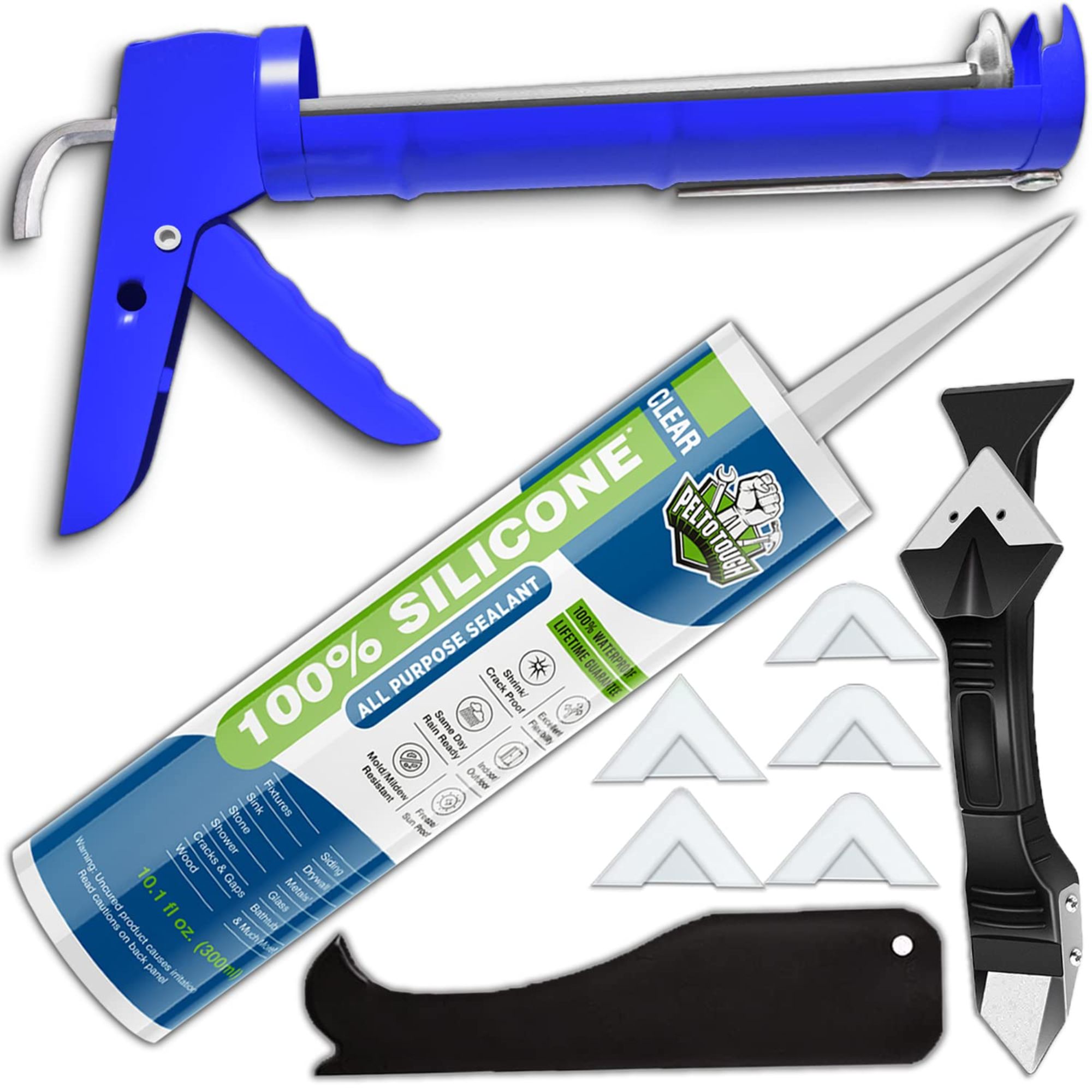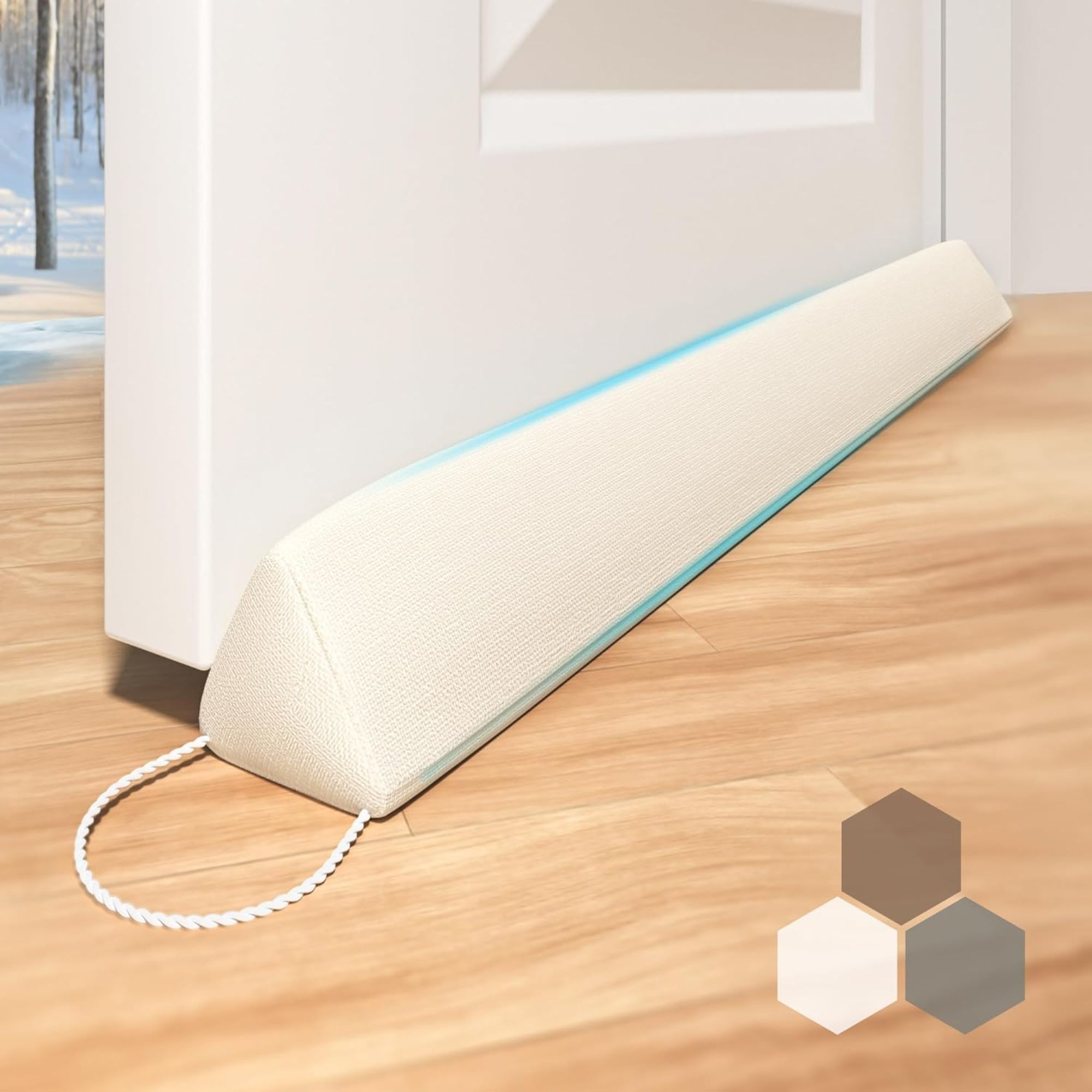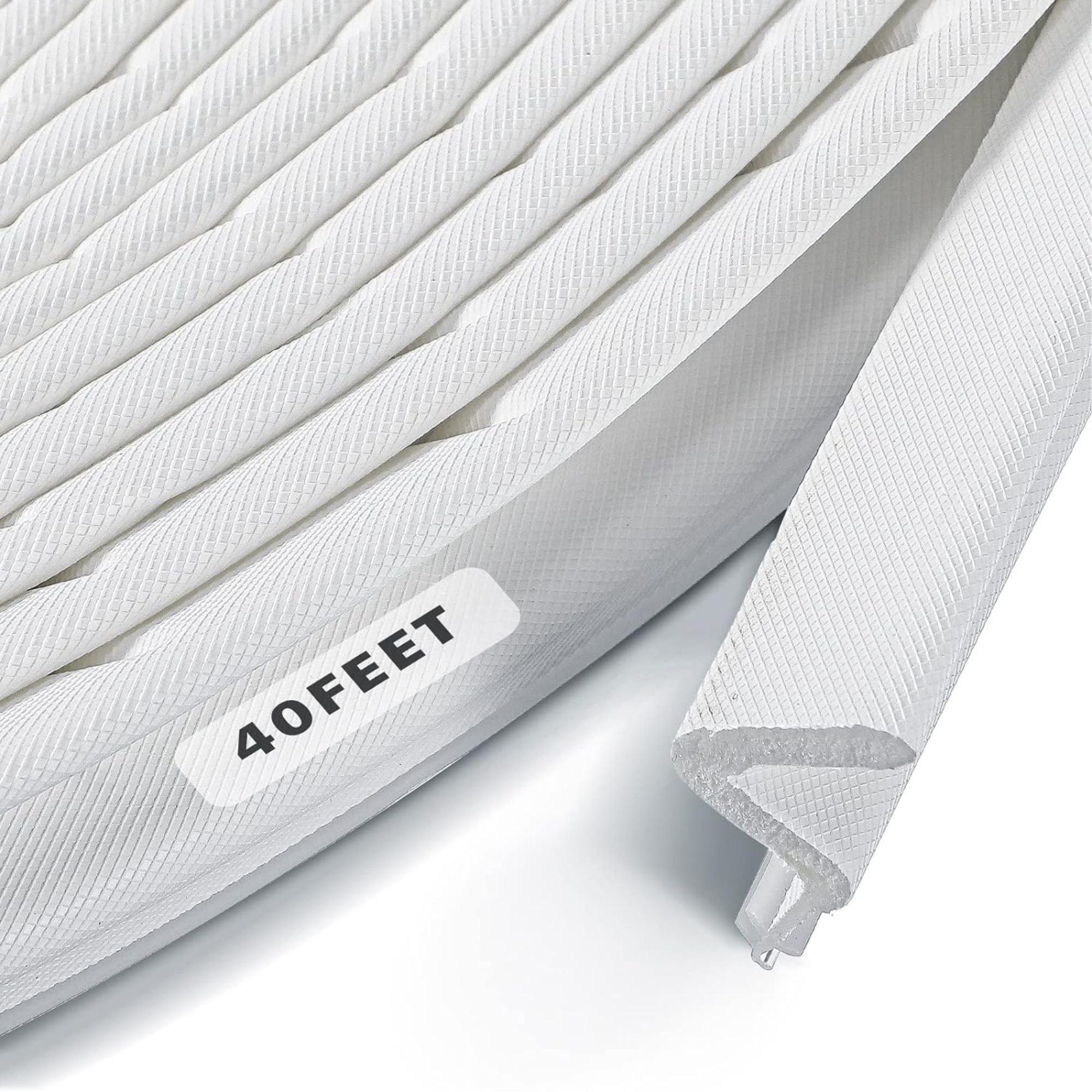How to make your shed feel warm – 5 ideas you can do yourself
Thoughtful design with warmth in mind can transform a cold and underutilized shed into an inviting space


Sheds can be a valuable addition to any garden. However, their separation from your home and occasional use can often leave them feeling chilly and unwelcoming. By following these tactics – which strike a careful balance between functionality and comfort – you can ensure that your shed remains warm, so you can make the most of it.
Creating a cozy and inviting atmosphere in your shed involves a thoughtful blend of design, insulation, and decor choices.
Whether you use your shed as a home office, a bedroom, or simply for storing garden items, incorporating these expert tips can significantly enhance the warmth of your shed while also helping to cut energy bills.
How to make your shed feel warm
Making your shed warmer is a practical concern for many, especially as the seasons change. Here are some expert tips to ensure your shed is a comfortable space, no matter the weather outside:
1. Add insulation
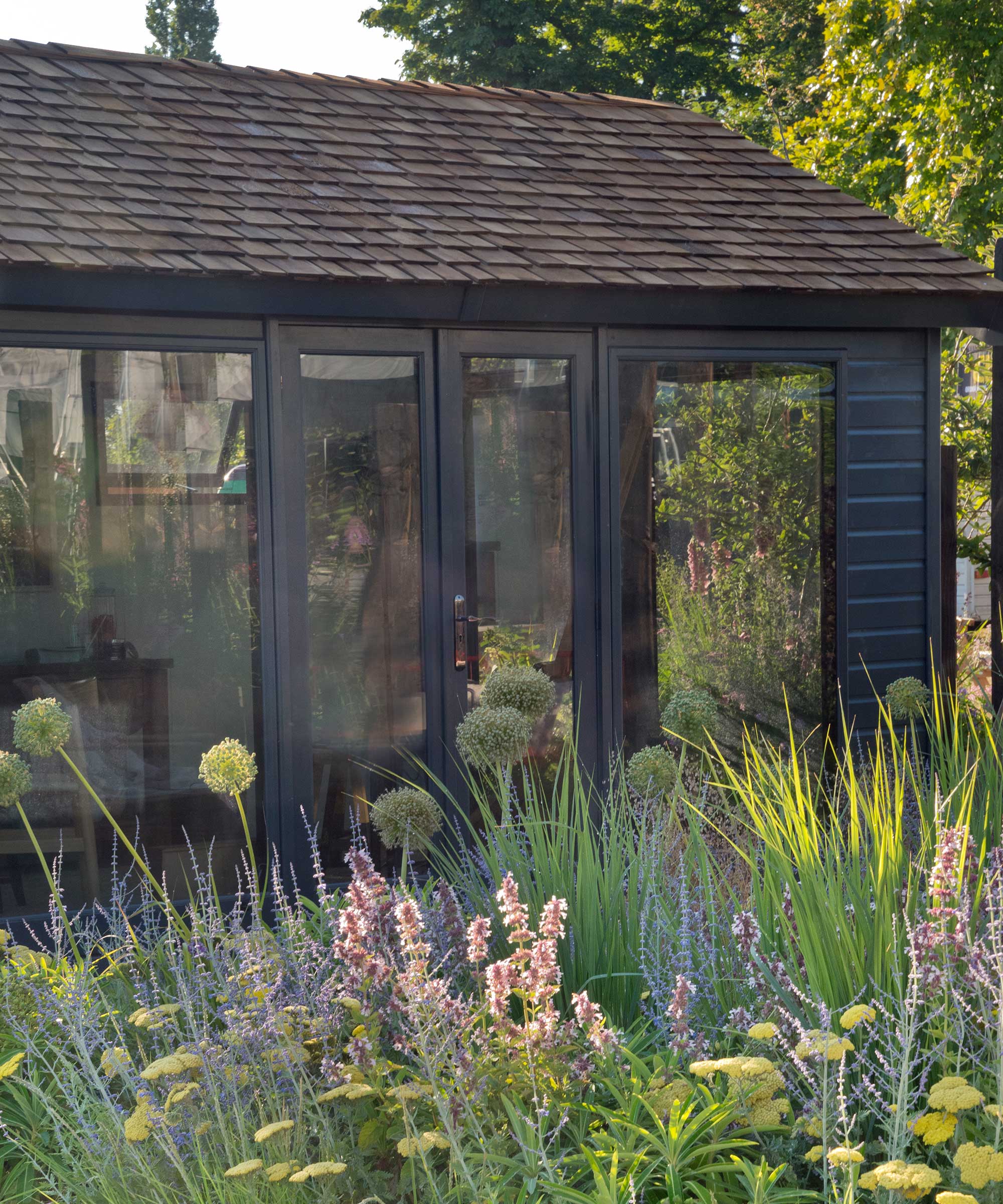
'Proper insulation is key to retaining heat in your shed,' says Shlomo Cherniak, owner of Cherniak Handyman Services. 'Insulating the walls, ceiling, and floor of your shed can help prevent heat loss and keep the interior warmer.
'There are various insulation materials available, such as fiberglass, foam board, or spray foam insulation, that you can use based on your shed's construction and needs.'
'Heat can also escape through the floor, especially if it's just bare earth or concrete,' explains Josh Mitchell, HVAC Technician and owner of Air Conditioner Lab. 'To combat this, add insulation boards beneath your flooring material, like plywood. Additionally, rugs or carpet remnants can add warmth and comfort underfoot.'
The best type of insulation will depend on your shed's structure, your budget, and how eco-friendly the material is. Getting your insulation right can make heating more efficient, reduce your environmental impact, and save you money.

Shlomo Cherniak is a handyman and founder of Cherinak Home Services in Baltimore. He has over seven years of experience in home improvement, with him and his team specializing in everything from installing kitchen cabinets to fixing leaky faucets to hanging pictures on the wall.
2. Weatherproof your shed
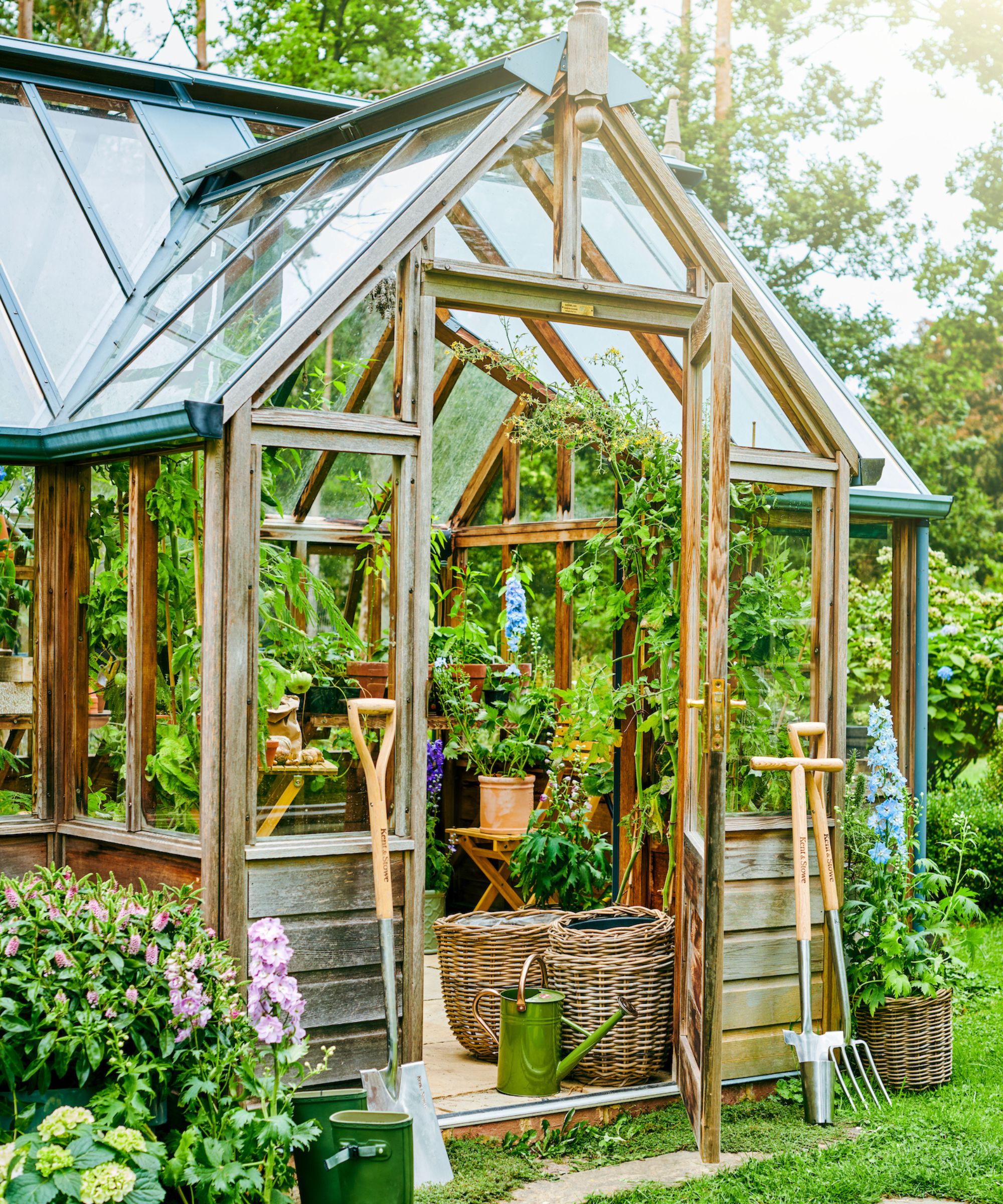
'Gaps and cracks can allow drafts to enter your shed, reducing its overall warmth,' explains Josh Mitchell, HVAC technician. Ensuring your shed is properly sealed will help maintain a cozy room, so it's important to identify any sources of drafts by looking out for gaps and cracks in the walls.
Design expertise in your inbox – from inspiring decorating ideas and beautiful celebrity homes to practical gardening advice and shopping round-ups.
Use a candle or incense stick to determine where cold air is coming from by looking for any signs of air flow indicated by a flickering candle or smoke movement. Once identified, patch these up with caulk and apply weather stripping around doors and windows to seal any openings.
To fix drafty doors, consider adding door sweeps or a draft blocker to add an extra layer of protection.

Josh Mitchell is a HVAC technician and the owner of Air Conditioner Lab. Josh began his business when he saw how confusing it was to shop for common home appliances and solutions. He began experimenting with ACs, heaters, air purifiers, and dehumidifiers, publishing his findings to help people solve their HVAC problems.
3. Incorporate heating solutions

Choosing the right type of heating for your shed is essential. Below, Shlomo Cherniak shares two popular heating types:
Electric radiant floor heating: This highly efficient option involves heating the floor, which then warms the people and objects in the room instead of just heating the air. These systems can be controlled with a smart thermostat which allows you to warm the space when you want to use it, and save energy when your shed is not in use.
Solar-powered options: Solar-powered heating systems are perfect for anyone looking to undertake eco home improvements, as they utilize solar energy to generate heat. Depending on the size of your shed, solar panels may be an option worth exploring.
Always prioritize safety and compliance with local regulations when installing a heating system.
4. Window treatments
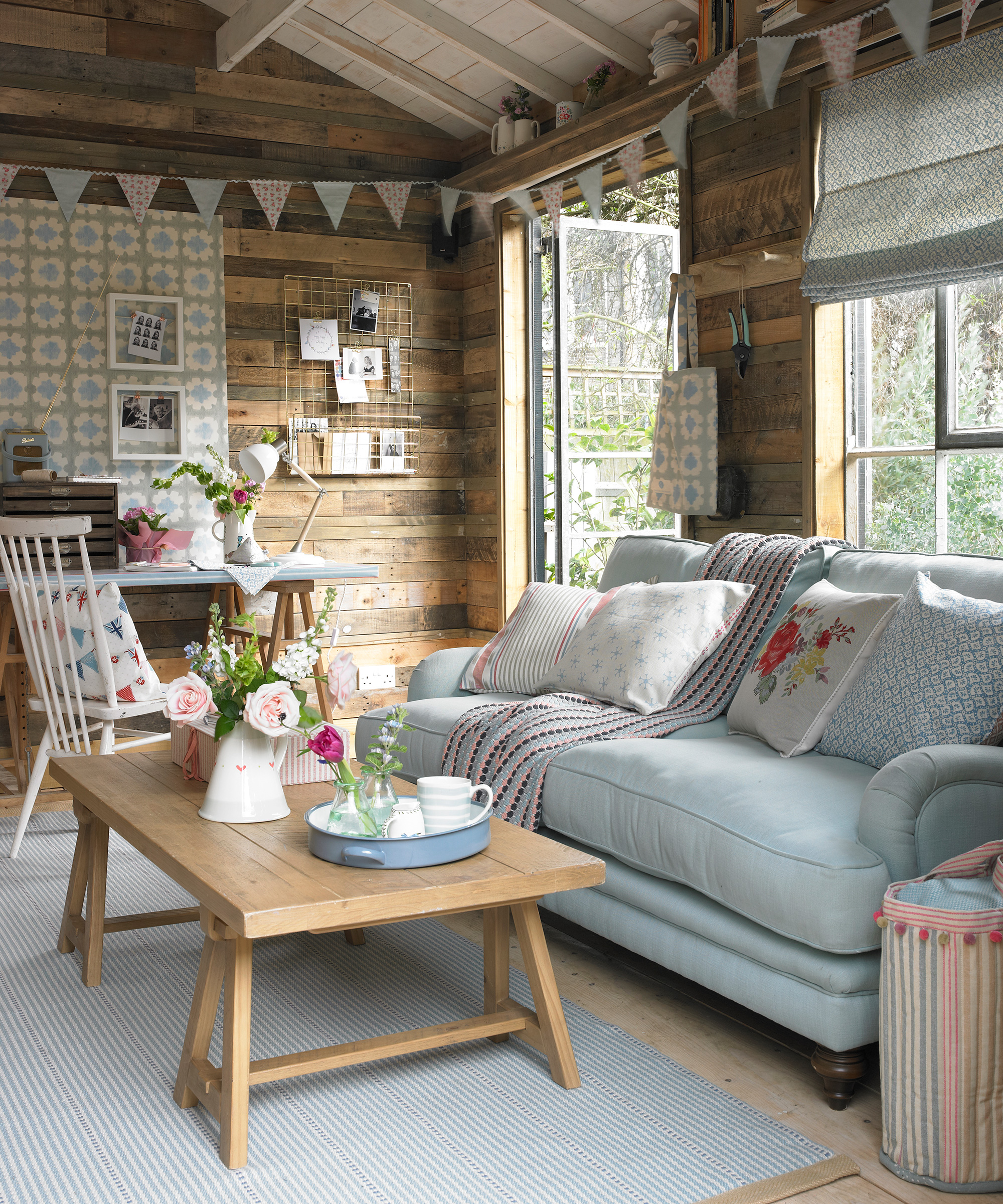
Windows are often a significant source of heat loss. While double glazing is the most effective way to keep windows insulated, it can be an expensive choice. Secondary glazing is a cost-effective alternative that reduces heat loss and provides additional soundproofing. You can purchase DIY secondary glazing kits online that are easy to affix to your windows and can be removed during warmer seasons.
5. Maximize sunlight
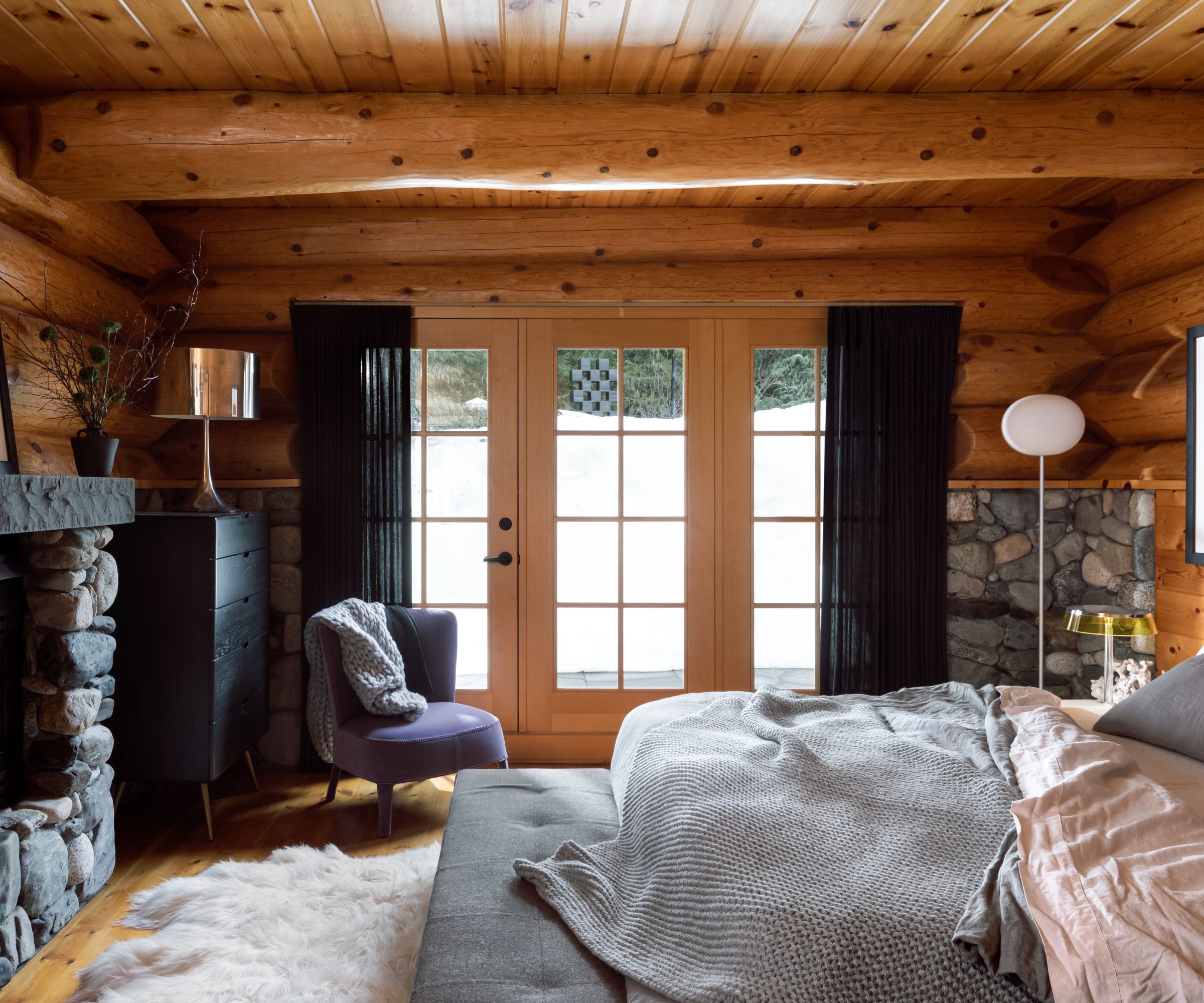
'During the day, open curtains or blinds to allow sunlight to enter the shed,' recommends Shlomo Cherniak. 'Sunlight can naturally warm up the space and provide some heat'.
When designing a shed, consider positioning it in a way that maximizes exposure to sunlight. Add skylights and tactically povsition windows according to where the sun faces.
FAQs
How can you make your shed cozier?
Sheds can often feel cold and uninviting, leading to them being underutilized, so tactically designing them to make them look cozier can be a great way to make this space more inviting.
Opt for a warm color scheme and decorate with earthy colors like beige, warm grey, and terracotta. Consider incorporating these hues into your decor and soft furnishings as well. Textured materials, such as plush cushions and layers of cozy blankets, will help to create a sense of warmth.
'Don't forget to perform regular shed maintenance checks,' advises HVAC Technician Josh Mitchell. 'Look for issues like leaks, drafts, or damage to the insulation, and address them promptly to ensure your shed remains warm and inviting.'
Safety should always be a top priority, especially when installing
heating solutions. When in doubt, consult a professional to ensure everything is done safely and effectively.

Lola Houlton is a news writer for Homes & Gardens. She has been writing content for Future PLC for the past six years, in particular Homes & Gardens, Real Homes and GardeningEtc. She writes on a broad range of subjects, including practical household advice, recipe articles, and product reviews, working closely with experts in their fields to cover everything from heating to home organization through to house plants. Lola is a graduate, who completed her degree in Psychology at the University of Sussex. She has also spent some time working at the BBC.
